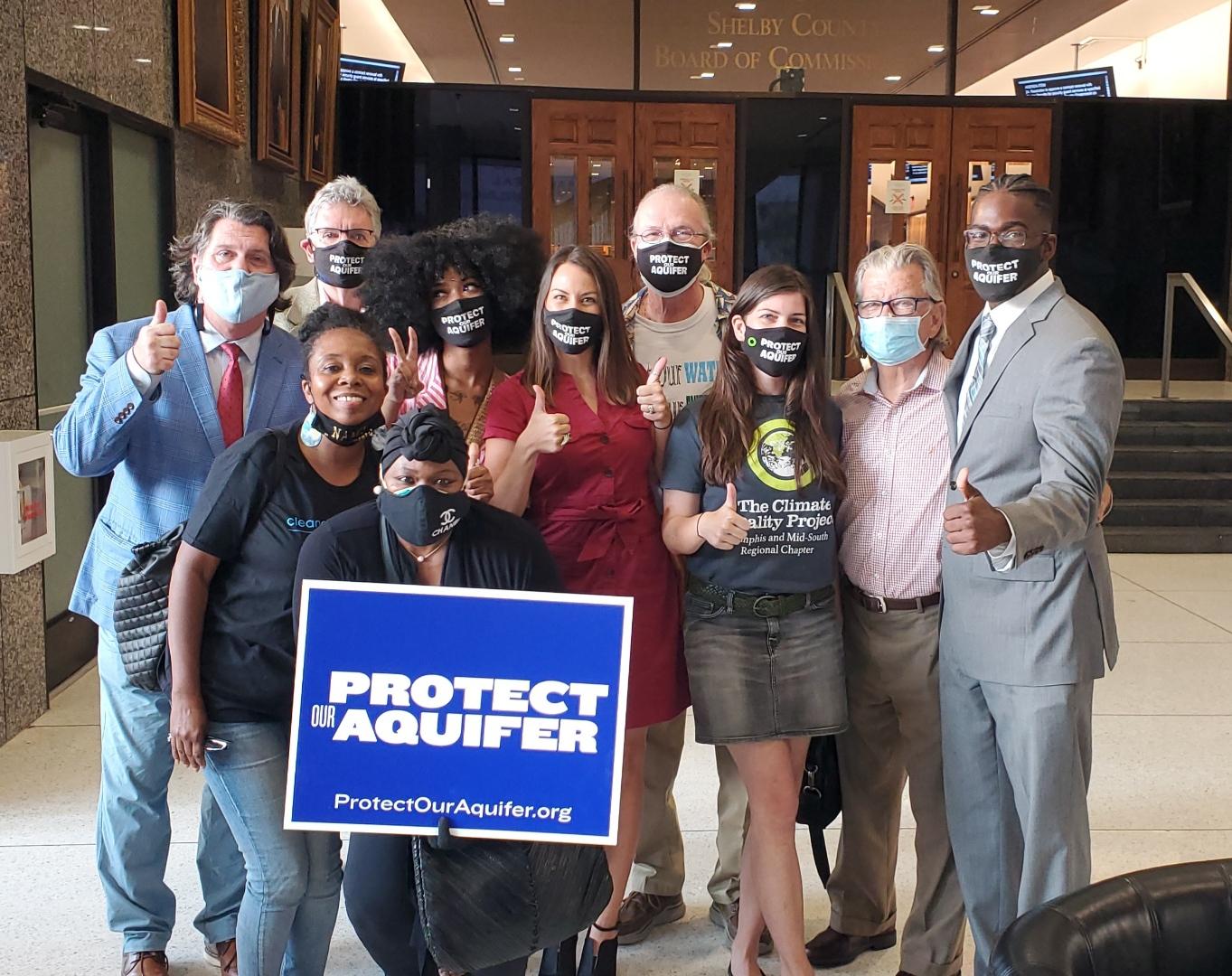Brady Watson, former Civic Engagement Coordinator for the Southern Alliance for Clean Energy, also contributed to this blog post.
At their November 16 meeting, Memphis City Council members took additional action to protect the city’s residents and drinking water. This latest law, which comes after months of debate and legal wrangling, ultimately passed with a unanimous 13-0 vote and comes after a previously-passed law that created a wellhead protection overlay in the Memphis City code several months ago in response to the proposed Byhalia Connection Pipeline.
Council members’ vote signifies final approval to this newest ordinance, which will require pipelines and similar infrastructure projects that seek to use city rights of way and streets to receive permits before they can do so. Coupled with the wellhead protection overlay, this new rights of way ordinance will grant much more authority to the City over future such projects by requiring Council approval for pipelines and other underground infrastructure projects that seek to use city rights of way.

While we welcome that this policy will help protect the Memphis community against future pipelines and ensure Memphians have more of a say over local development decisions, we were disappointed that at the same meeting, the Council voted down another long-delayed setback ordinance (a joint venture with Shelby County) that would have specifically barred oil pipelines from locating within 1,500 feet of schools, churches, parks, and family recreation areas.
Council attorney Allen Wade stated that the proposed setback ordinance specific to crude oil pipelines isn’t necessary because of the rights of way ordinance. He even went so far as to say that passing the setback ordinance could in fact weaken the rights of way law, and most Councilmembers followed his advice and took no action. “The rights of way ordinance regulates every street and right of way in the city,” he told the council. “It completely covers the universe of potential routes that any kind of utility can use. It cannot go forward without your consent.”
Councilmember Chase Carlisle said that his colleagues should follow the advice of their counsel and vote down the setback ordinance. The only two Councilmembers who voted yes on the setback ordinance were Jeff Warren and Michalyn Easter-Thomas. In response to a claim that the setback ordinance, which had already been passed by the County Commission, might be a case of overreach by County Commissioners, Warren said, “I don’t think this was really overreach on their part. We were trying to do something together.” Wade told Council members that the setback ordinance could always be revisited at a later date if necessary.

The setback measure was voted down on its third and final reading, but advocates with Memphis Community Against Pollution (MCAP), Protect Our Aquifer, NAACP Memphis Chapter, Sierra Club, Climate Reality Project, Southern Environmental Law Center, and us at the Southern Alliance for Clean Energy (SACE), will continue to advocate for more protections against dangerous fossil fuel pollution and infrastructure beyond pipelines. Memphis has the power to create a more affordable, equitable, and prosperous energy future while moving beyond fossil fuels and to clean energy, and the amazing community work to fight oil pipelines is helping bring that future about. As always, stay tuned here for updates and join us in our fight to protect Memphis, and if you are able, please support our work to Renew Tennessee.